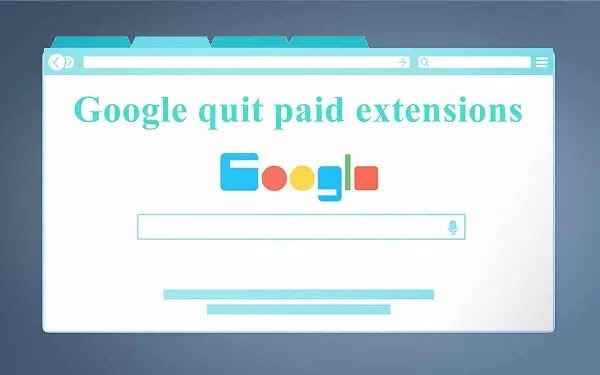Google announces on its blog the end of paid Chrome extensions using the Chrome Web Store platform. Developers who want to monetize their extension will have to look to alternative payment solutions. Google no longer wishes to endorse the frauds which have exploded via add-ons in recent years.
Google announces on the Chrome blog the end of paid extensions using the Chrome Web Store payment platform: “The Chrome Web Store payment system is now obsolete and will be shut down over the next few months. There are many other ways to monetize your extensions, and if you use payments through the Chrome Web store, you will need to migrate to one of these solutions, ”Google explains to developers.
Google no longer wants to be involved in payment fraud
The firm immediately gives little influence on the reasons for this choice: “the web has come a long way in the 11 years following the launch of the Chrome Web Store. At the time, we wanted to give developers the means to monetize their Web Store items.
But in the meantime the ecosystem has grown and developers now have many payment management options ”. In fact, Google wants to withdraw from an activity marred by an explosion of fraud.
In January, Google had indeed suspended the publication of extensions using its payment system after noting an explosion of questionable transactions "whose purpose was to exploit users".
According to the schedule unveiled by Google, the company is preparing to gradually shut down its solution over the coming months. Thus since Monday, September 21, Google no longer allows developers to use its payment system for new extensions. On December 1st, the platform will no longer allow publishers to offer trial periods.
On February 1, 2021, all payments will be disabled - but the system will continue to recognize the presence of a license for users who have already paid for an extension before that date.
The programming interface that manages the licenses will itself be deactivated at a later date in 2021. This is not the only measure taken by Google to regulate the activity of extensions.
In April, Google introduced new rules to prevent developers, for example, from manipulating reviews to push their extensions up in search results. Or to prevent extensions that abuse notifications, or publishers who publish many almost identical extensions, from staying on the Chrome Web Store.


